Everything you need to know about Nvidia
A brief guide to Nvidia, a driving force behind technological innovation and one of the most valuable companies operating today
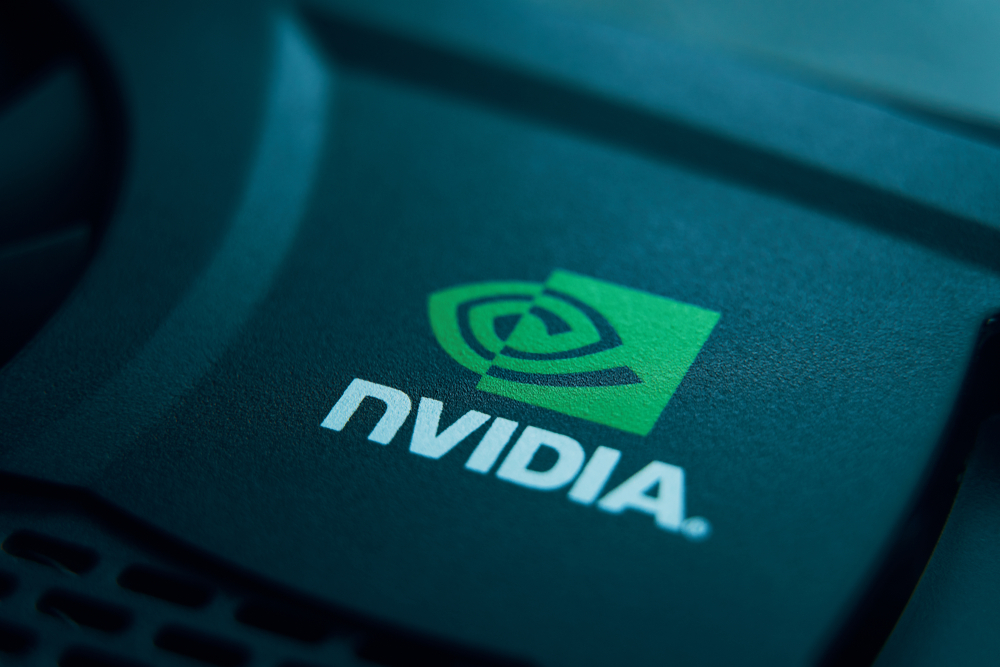

Nvidia is a leader in the technology industry, renowned for its ground-breaking work in graphics processing units (GPUs) and its role in advancing artificial intelligence (AI) and high-performance computing.
Headquartered in Santa Clara, California, Nvidia's innovations have made a substantial impact across diverse sectors, from gaming and professional visualization to data centers and automotive technology. Its cutting-edge AI platforms and technologies have been instrumental in driving AI adoption across multiple industries, establishing Nvidia as a key force in the ongoing AI revolution.
History of the company
Quick Facts about Nvidia
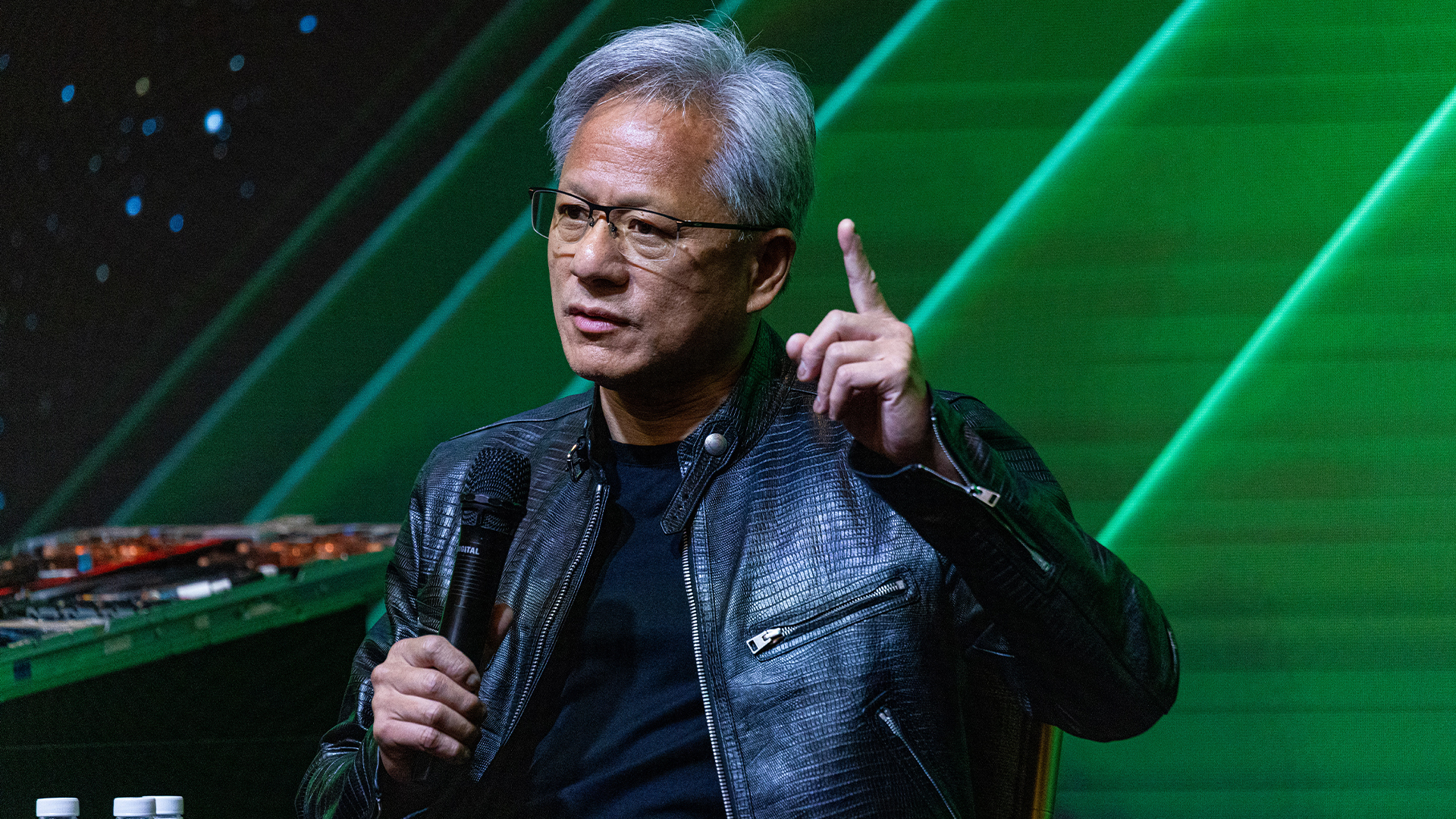
Founded: April 5, 1993
Founders: Jensen Huang (pictured), Chris Malachowsky, and Curtis Priem
Current CEO: Jensen Huang
Headquarters: Santa Clara, California, USA
Annual Revenue: $60.9 billion (2023)
Number of Employees: Approximately 29,600
Market Capitalisation: Over $3.44 trillion as of 2024
Nvidia was established in 1993 with a mission to bring advanced graphics to mainstream computing. Initially focused on 3D graphics for gaming and multimedia, the company made its first major inroad in 1999 with the release of the GeForce 256, recognized as the world’s first GPU. This invention not only transformed gaming graphics but also solidified Nvidia’s place in the industry as a leader in visual computing.
Over the following years, Nvidia expanded its focus from consumer graphics to professional applications, laying the groundwork for future innovations. In 2006, Nvidia introduced the CUDA (Compute Unified Device Architecture) platform, enabling developers to use GPUs for a wide range of computational tasks beyond graphics. This was a game-changer for high-performance computing, scientific research, and engineering, providing the power needed for complex simulations, data processing, and research in fields like genomics and weather forecasting.
As AI technology began to surge, Nvidia was well-positioned to capitalize on the trend, becoming a vital player in the AI and data center sectors. The company launched its DGX systems, designed specifically for AI research, providing researchers and organizations with the computational power to advance deep learning and machine learning models. Additionally, Nvidia's Omniverse platform has brought new capabilities to industries in need of 3D design and simulation, such as architecture, automotive, and media, offering collaborative, real-time environments for complex virtual worlds and digital twins.
In recent years, Nvidia's impact has reached unprecedented levels. The company has leveraged its expertise in AI and machine learning to drive innovations across diverse industries, from healthcare and autonomous vehicles to cloud computing.
In 2024, Nvidia achieved significant milestones, notably surpassing Apple to become the world's most valuable company by market capitalization, reaching approximately $3.44 trillion. This surge was driven by increased demand for its AI chips from tech giants like Meta and Alphabet. Additionally, Nvidia addressed a design flaw in its Blackwell AI chips, collaborating with TSMC to resolve production delays and maintain its leadership in AI hardware.
Sign up today and you will receive a free copy of our Future Focus 2025 report - the leading guidance on AI, cybersecurity and other IT challenges as per 700+ senior executives
What does Nvidia sell?

Nvidia's product offerings span a wide range of industries, supporting everything from gaming and professional visualization to AI, data centers, and autonomous vehicles.
Nvidia is particularly dominant in the gaming industry; its GeForce GPUs are at the heart of PC gaming systems, delivering high-performance graphics that power immersive experiences. The company is estimated to hold approximately 88% of the GPU market, significantly outpacing its closest rival AMD. The Nvidia Shield series extends the company's reach into home entertainment, offering devices that combine streaming, gaming, and smart home capabilities. For cloud gaming, Nvidia provides GeForce Now, a subscription-based service that enables gamers to play high-quality games on virtually any device via cloud streaming.
For professionals in media, entertainment, and design, Nvidia offers its Quadro GPUs, known for their precision and reliability in 3D modeling, animation, and high-end visualization tasks.
In the data center sector, Nvidia has become a powerhouse with its AI-focused GPUs, particularly the A100 Tensor Core GPU, which supports demanding workloads in machine learning and inference. These GPUs are widely adopted by companies looking to scale AI operations and enable deep learning applications, ranging from natural language processing to image recognition.
Nvidia has also made significant advancements in the automotive industry, where its Nvidia DRIVE platform provides end-to-end solutions for autonomous vehicle development. DRIVE integrates powerful AI computing with sensor data processing, enabling advanced driver assistance systems (ADAS) and supporting fully autonomous driving features. This platform is central to Nvidia's vision of an AI-driven future for automotive safety and efficiency.
In addition to hardware, Nvidia offers platforms that streamline AI and machine learning development, such as the Jetson platform, designed for edge AI and robotics. Jetson provides compact, energy-efficient modules that support AI-driven applications at the edge, making it ideal for autonomous machines, drones, and IoT devices. Nvidia’s product ecosystem also includes Omniverse, a collaboration platform for 3D design and simulation, allowing professionals across industries to work together in real time on complex digital projects. Through its comprehensive range of hardware, software, and cloud-based services, Nvidia is positioned as a key technology provider for industries undergoing rapid digital transformation.
Nvidia’s mergers and acquisitions
To bolster its technological capabilities, Nvidia has made several strategic acquisitions.
In 2020, the company acquired Mellanox Technologies, enhancing its data center offerings.
Nvidia acquired DeepMap in 2021 to improve mapping solutions for autonomous driving, and in 2022, it strengthened its AI and high-performance computing capabilities by acquiring Bright Computing.
Although Nvidia's proposed acquisition of ARM Holdings was terminated in 2022 due to regulatory challenges, it underscored the company's ambition to expand its influence in the semiconductor industry.
In 2024, Nvidia continued its strategic expansion through several notable acquisitions aimed at enhancing its capabilities in artificial intelligence (AI) and cloud computing.
In April 2024, Nvidia announced its agreement to acquire Run, an Israeli startup specializing in AI workload management and orchestration software. This acquisition is intended to optimize AI computing resources for customers, facilitating more efficient deployment and management of AI workloads across various infrastructures.
In July 2024, Nvidia acquired Brev.dev, a San Francisco-based startup that provides a development platform for building, training, and deploying AI and machine learning models on cloud-based GPU instances. This acquisition aims to simplify access to GPU resources across multiple cloud service providers, thereby enhancing Nvidia's cloud AI offerings.
In September 2024, Nvidia acquired OctoAI, a Seattle-based startup specializing in tools for building and running generative AI models more efficiently. This acquisition is expected to bolster Nvidia's capabilities in AI model deployment and optimization, further strengthening its position in the AI industry.
Key figures at Nvidia
Jensen Huang co-founded Nvidia and serves as its president and CEO. He has been with the company since its beginning and continues to guide its strategic direction and innovation efforts.
Colette Kress holds the position of executive vice president and chief financial officer. Her responsibilities include managing Nvidia's financial strategies and overseeing the company's financial health and growth.
Tim Teter is the executive vice president, general counsel, and secretary. His role involves overseeing Nvidia's legal and regulatory matters within the tech industry.
Jay Puri is the executive vice president of worldwide field operations. His responsibilities include managing global sales and marketing efforts, which contribute to Nvidia's international expansion and market presence.
What can customers expect from doing business with Nvidia?
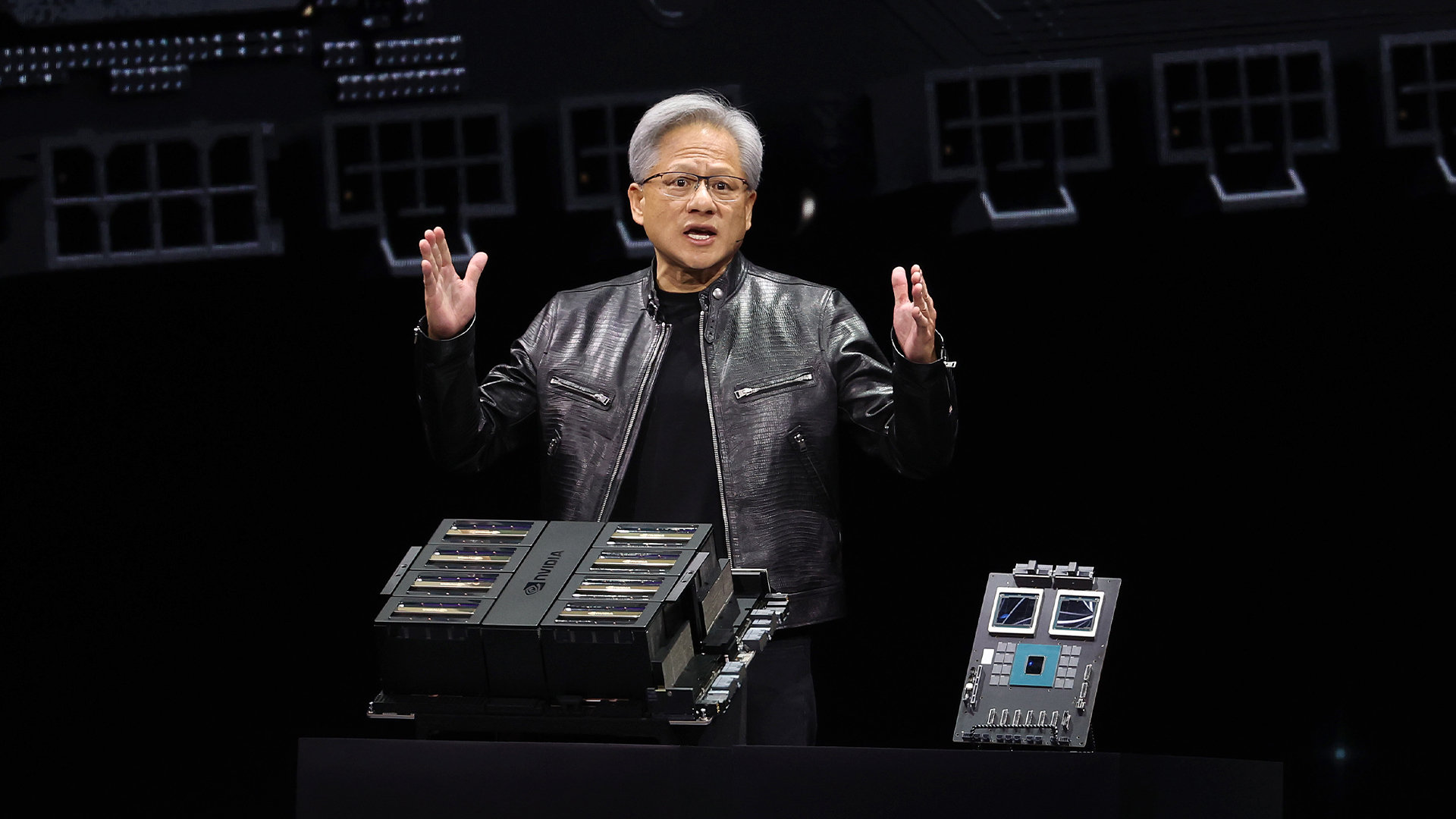
Customers engaging with Nvidia can expect access to cutting-edge technology that consistently drives innovation. Nvidia's products, renowned for high performance and reliability, cater to a wide range of applications, from gaming to professional visualisation and AI development.
The company's GPUs, like the GeForce and Quadro series, are industry leaders in providing superior graphics and computational power, making them indispensable tools for both gamers and professionals who require advanced computing capabilities.
RELATED WHITEPAPER
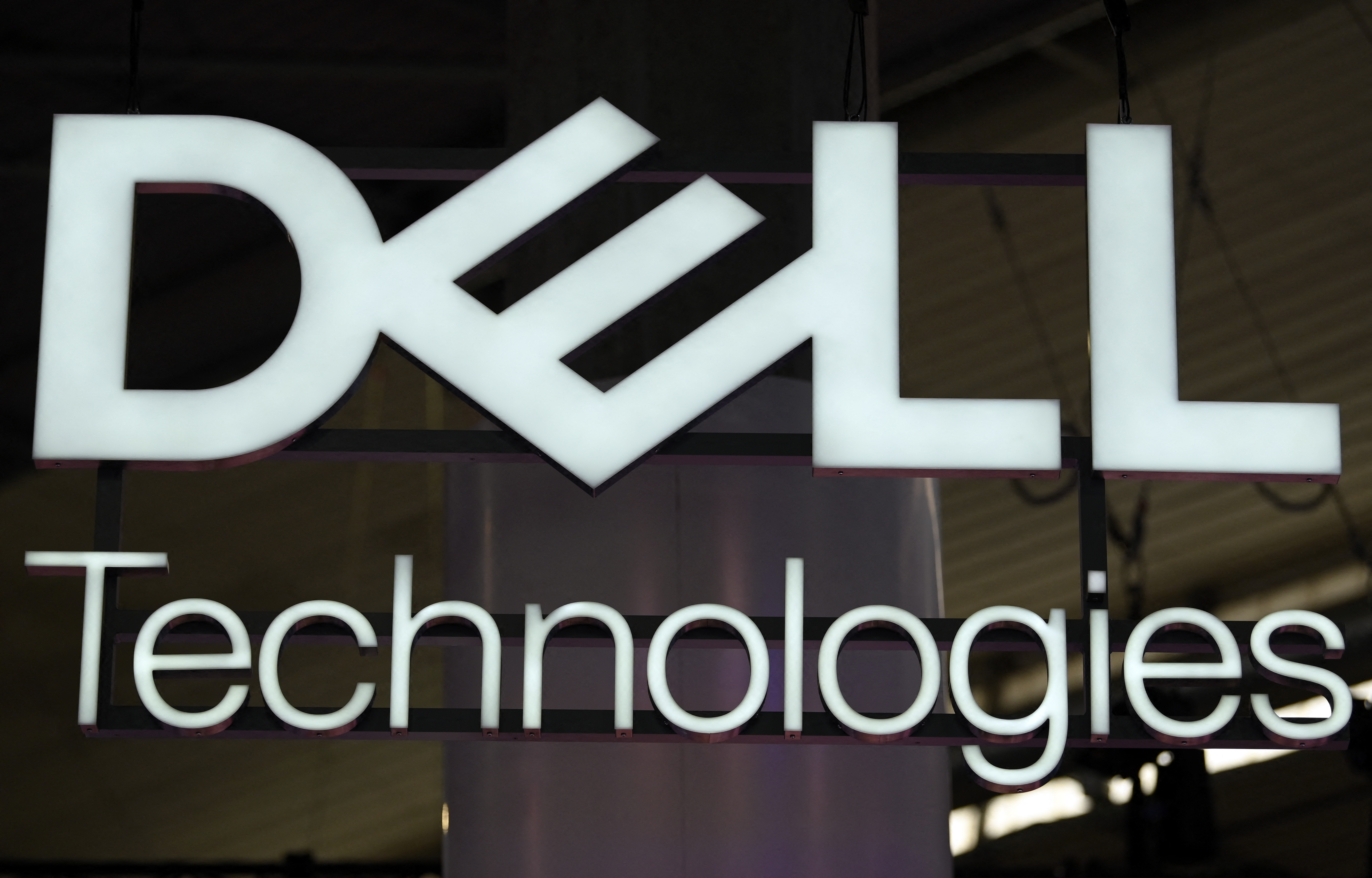
In addition to performance, Nvidia's commitment to sustainability is a cornerstone of its business strategy. The company strives to create efficient computing solutions that minimise environmental impact. For instance, Nvidia’s data center products, such as the A100 Tensor Core GPU, are designed to deliver solid AI training and inference performance while optimising energy consumption. This focus on energy efficiency not only supports the environmental goals of its customers but also reduces operational costs, making Nvidia’s products economically advantageous as well.
Nvidia's holistic approach ensures that customers receive not only powerful and innovative technologies but also environmentally conscious solutions. The company's initiatives in sustainable computing, combined with its relentless pursuit of innovation, position Nvidia as a leader in the tech industry. This blend of high performance, reliability, and sustainability makes Nvidia a preferred partner for businesses and individuals looking to harness the latest advancements in technology.
- How Nvidia took the world by storm
- Northern Data Group becomes first company in Europe to acquire Nvidia H200 GPUs
- Nvidia thinks it’s time to start measuring data center efficiency by other metrics — is this the end of PUE?
Rene Millman is a freelance writer and broadcaster who covers cybersecurity, AI, IoT, and the cloud. He also works as a contributing analyst at GigaOm and has previously worked as an analyst for Gartner covering the infrastructure market. He has made numerous television appearances to give his views and expertise on technology trends and companies that affect and shape our lives. You can follow Rene Millman on Twitter.
-
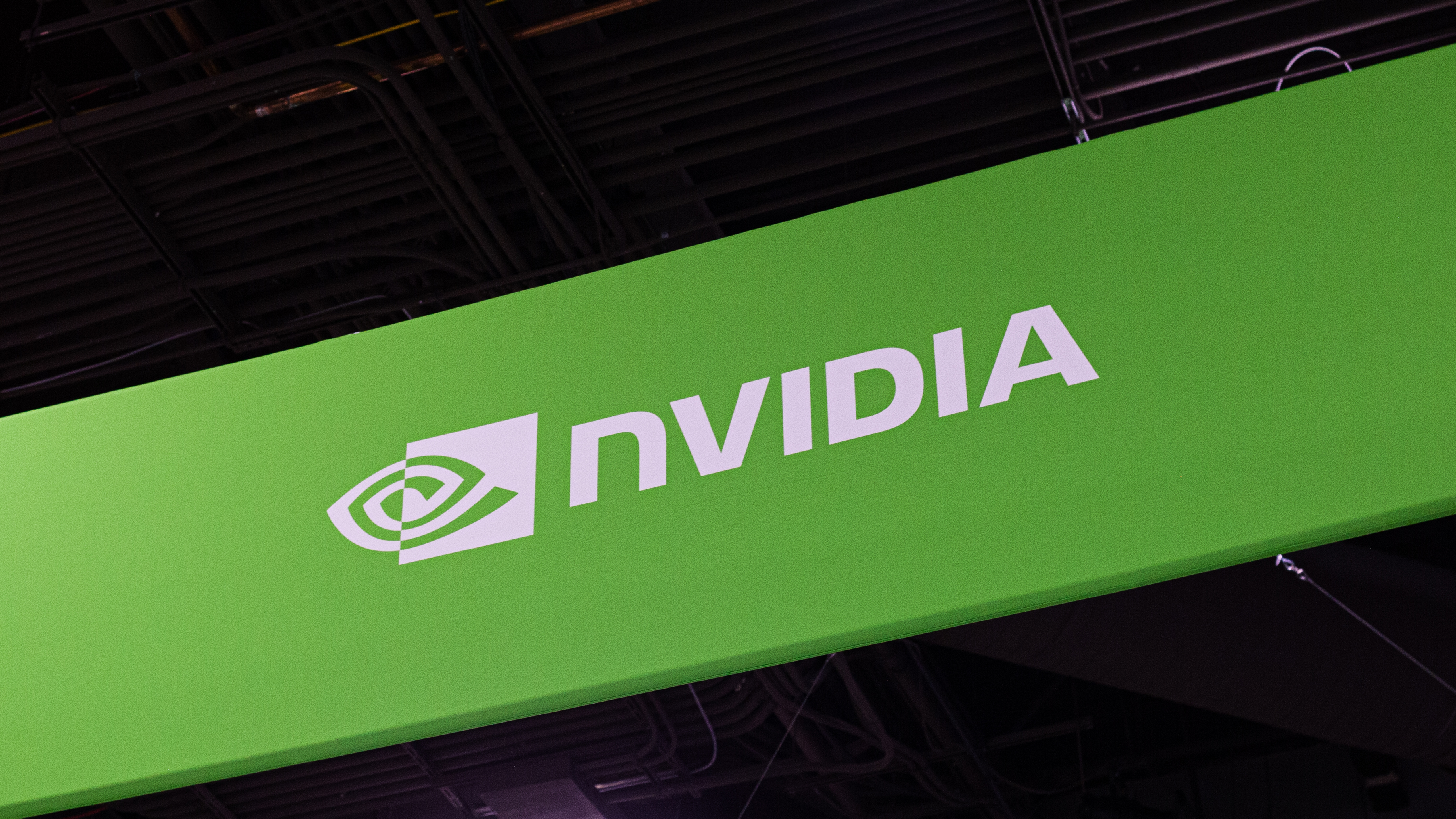 Why does Nvidia have a no-chip quantum strategy?
Why does Nvidia have a no-chip quantum strategy?As the world’s leading manufacturer of GPUs, Nvidia’s approach to quantum computing has left many experts baffled
-
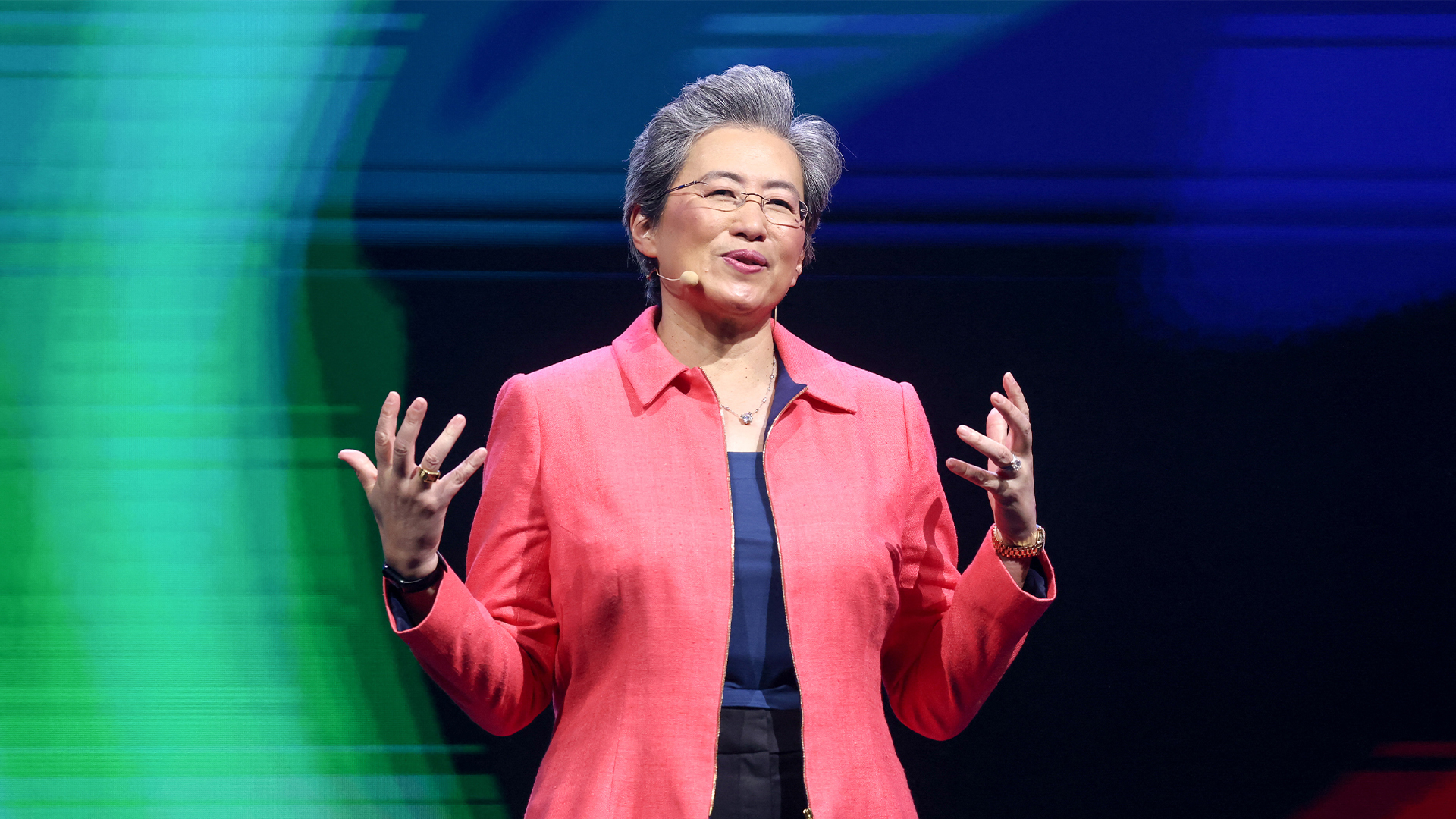 AMD to cut around 1,000 staff to focus on "growth opportunities"
AMD to cut around 1,000 staff to focus on "growth opportunities"News The AMD layoffs come after rival Intel cut staff on the back of flagging AI returns
-
 Microsoft and Nvidia are teaming up to support UK AI startups – and they want to attract firms outside of London and the South East
Microsoft and Nvidia are teaming up to support UK AI startups – and they want to attract firms outside of London and the South EastNews Microsoft and Nvidia have teamed up to launch a generative AI accelerator for UK startups.
-
 Nvidia promises to give Californians free AI training with new initiative
Nvidia promises to give Californians free AI training with new initiativeNews A new partnership between Nvidia and the state of California promises to help train 100,000 residents in AI skills and give academic institutions better access to hardware
-
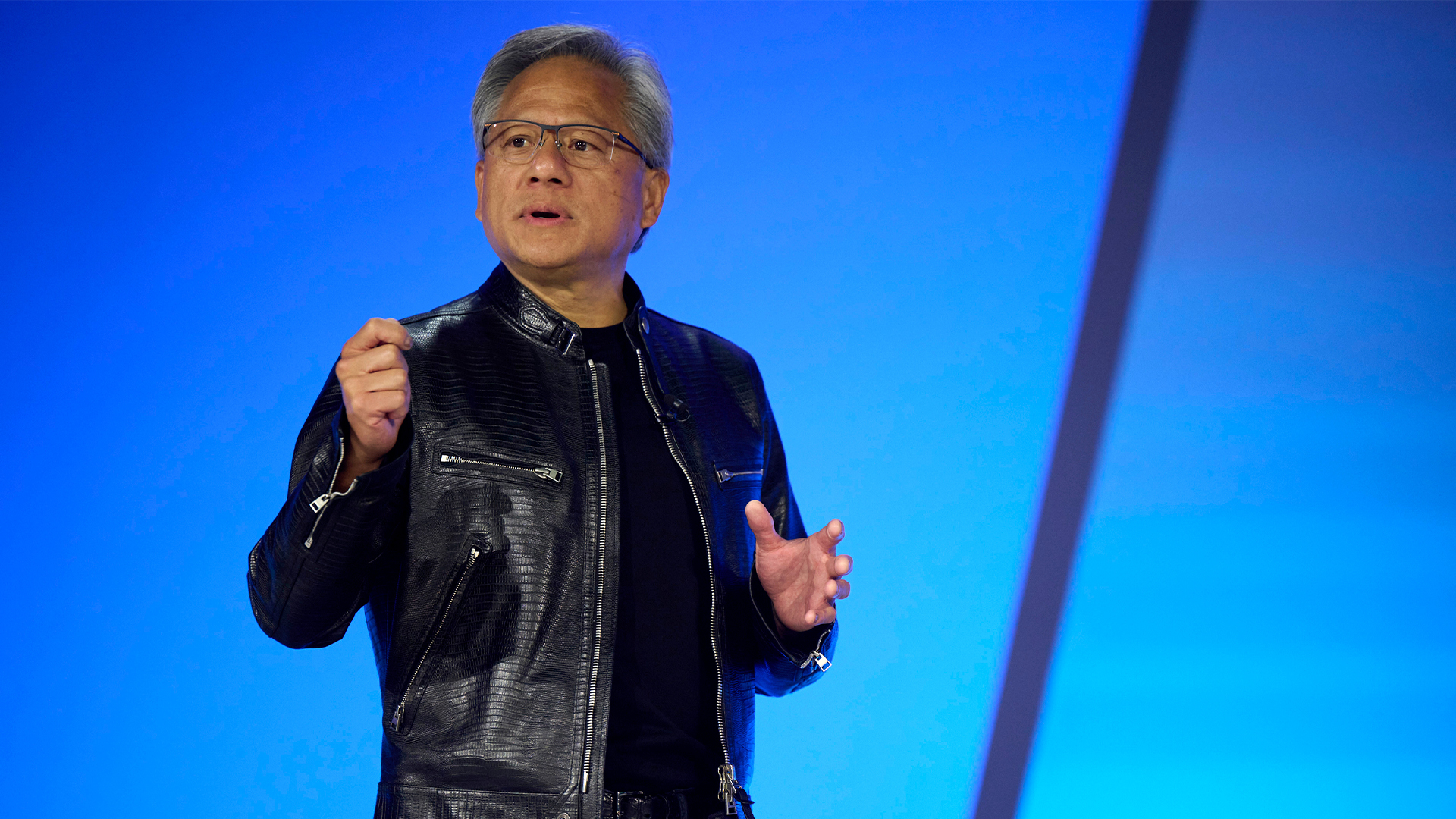 Jensen Huang has taken Nvidia to the top – but he says the 'suffering' wasn't really worth it
Jensen Huang has taken Nvidia to the top – but he says the 'suffering' wasn't really worth itNews Nvidia’s Jensen Huang waxed lyrical about the trials and tribulations of turning a startup into a trillion-dollar company
-
 HP infuses Amplify Partner Program with new AI-based training and benefits
HP infuses Amplify Partner Program with new AI-based training and benefitsNews Additions include an AI MasterClass training and certification program, and a new growth opportunity in AI Data Science
-
 Lovers not fighters: Nvidia and Snowflake take their relationship to the next level with focus on generative AI
Lovers not fighters: Nvidia and Snowflake take their relationship to the next level with focus on generative AINews NVIDIA NeMo will integrate with Snowflake Data Cloud to enable custom large language models using proprietary data to be built quickly and easily
-
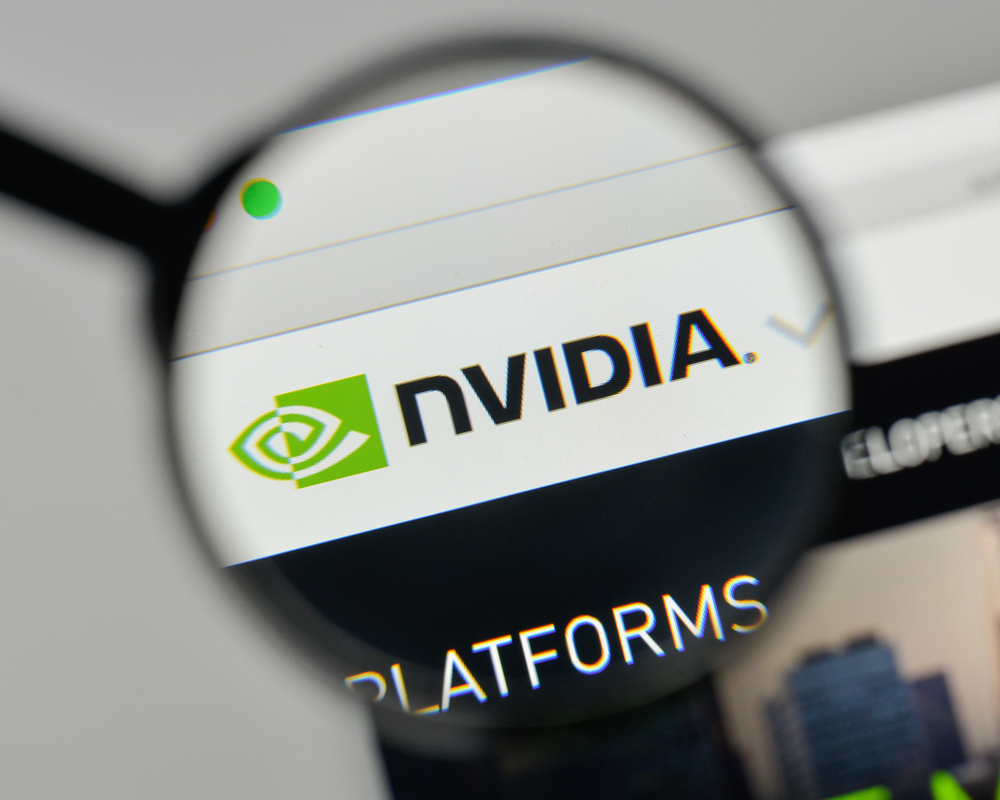 Nvidia pauses hiring to help cope with inflation
Nvidia pauses hiring to help cope with inflationNews This comes as the Federal Reserve underlined the link between higher wages contributing to inflation earlier this month


